QIA President’s message for QIA AGM October 2020
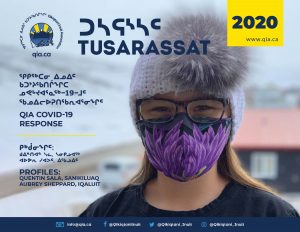
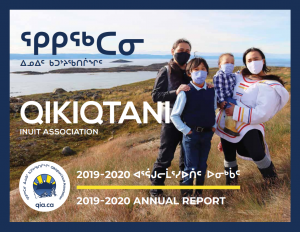
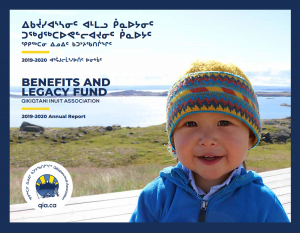
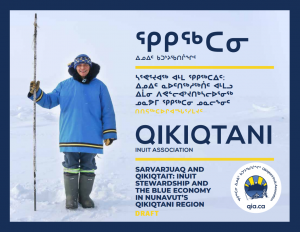
2020 began with unprecedented events and drastic changes. In Nunavut, the threat of the COVID-19 pandemic sparked reminders of past trauma of tuberculosis and the ongoing shortcomings of healthcare and housing in our territory.
Despite these challenges, in the past few months, I have also seen the best of Inuit. I have seen generosity and kindness, community members sharing country food and supporting Elders and those in need. I am proud of how Qikiqtani Inuit have risen to the challenges posed by COVID-19 and I am eager to see us push past these difficult days to better times.
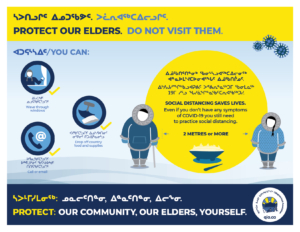
COVID-19 RESPONSE
Because of the COVID-19 pandemic, all our work and modes of operation changed in early 2020. We had to adjust where we work and how we work. Our team re-organized our priority files and created new emergency initiatives.
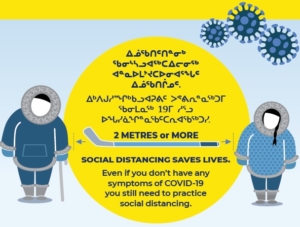
In mid-March, QIA suspended all our regular programs and closed our offices to the public. Our staff’s efforts were re-directed to design new emergency initiatives. We ramped up our communications and public outreach efforts to inform and educate Qikiqtani Inuit about COVID-19 prevention and mitigation measures.
The funds for QIA’s COVID‑19 response plan came from the Indigenous Community Support Fund (ICSF) announced by the Federal Government on March 25, 2020. QIA’s share of that fund is approximately $6.1 million ($6,132,544).
The initial funds for 65 laptops came from the Mastercard Foundation and the Federal Government. The initiative was later expanded with a contribution of 40 additional laptops from Actua, Canada’s largest science, technology, engineering and math (STEM) outreach organization.
A quick snapshot of the numbers on QIA’s COVID-19 initiatives shows:
- $3 million is the value of groceries and vouchers distributed to Qikiqtani Elders
- Over 1,200 is the number of Qikiqtani Elders who were provided grocery vouchers to help access healthy food and cleaning supplies
- $2.1 million total amount of grants provided for social-distancing on the land to Qikiqtani families
- 1, 408 is the number of Qikiqtani families that received a grant to social distance on-the-land
- 4,490 is the number of Inuit who used the grant to social distance on-the-land
- 105 is the number of laptops QIA helped Qikiqtani students access to minimize disruption to their education
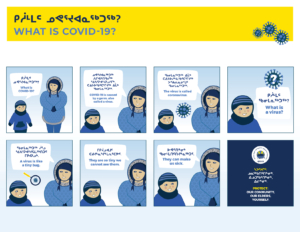
To help feed our communities during the height of the pandemic, QIA extended funds to Qikiqtani Hunters and Trappers Organizations (HTOs). In March, QIA matched Nunavut Tunngavik’s $5,000 donation to Qikiqtani Region HTOs for a total of $10,000 for each community.

To assist Inuit-owned businesses survive the COVID-19 pandemic, QIA supported Kakivak to implement two programs. The $1 million Qikiqtani COVID-19 Emergency Wage Subsidy Program and the $500,000 Qikiqtani COVID-19 Business Relief Program.
These initiatives have been a huge success. Our online applications for the on-the-land program and the computers for student program were completed quickly. Families have sent photos and messages from successful on-the-land trips from across the Qikiqtani Region. Elders have also told us that the grocery vouchers made a big difference in their lives – giving them regular access to necessary household goods.
Despite the challenges posed by COVID-19 our team has continued to make tremendous strides on key files.
TALLURUTIUP IMANGA
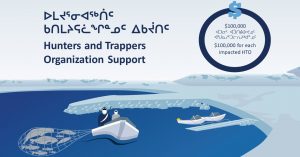 Our Department of Marine and Wildlife continues to deliver new benefits for Inuit through Tallurutiup Imanga. In July 2020, QIA distributed $100,000 to HTOs in the five Tallurutiup Imanga National Marine Conservation Area communities of Arctic Bay, Clyde River, Grise Fiord, Pond Inlet and Resolute Bay.
Our Department of Marine and Wildlife continues to deliver new benefits for Inuit through Tallurutiup Imanga. In July 2020, QIA distributed $100,000 to HTOs in the five Tallurutiup Imanga National Marine Conservation Area communities of Arctic Bay, Clyde River, Grise Fiord, Pond Inlet and Resolute Bay.
Our Nauttisuqtiit team is growing with new staff in each of the five impacted communities. In Arctic Bay, our team has been providing country food to their community during the pandemic.
We are advancing work on infrastructure projects in the Tallurutiup Imanga National Marine Conservation Area communities. Work completed includes feasibility studies for multi-use facilities in each of the five communities, a Memorandum of Understanding for community harbours in Grise Fiord and Resolute Bay, and consultations on harbour designs in Arctic Bay and Clyde River.
QIKIQTANI TRUTH COMMISSION
The Qikiqtani Truth Commission remains a priority file and we have taken steps towards developing programs. QIA hired a Qimmiit Revitalization Coordinator who will be focusing on qimmiit related projects and programs.
Through the Qikiqtani Truth Commission agreement, QIA received the initial $17.5 million from the Government of Canada. A contribution agreement for $2.5 million is in progress as is negotiations to reach our larger goal and financial agreement. These discussions have been impacted by COVID-19.
MARY RIVER PROJECT
In January 2020, Baffinland approached QIA and explained that the current project is not financially stable. Following the cancellation of the Nunavut Impact Review Board’s March 2020 technical meetings due to COVID, Baffinland again approached QIA with this information and stated that the mining company may be forced to consider shutting down unless there was a possibility of moving forward on their plan towards Phase 2 expansion.
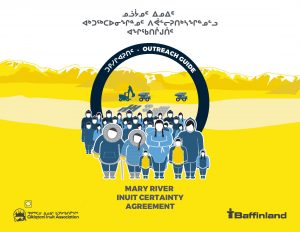
QIA employed PriceWaterhouseCoopers to investigate Baffinland’s claim of financial hardship, the independent investigation showed that the mining company’s claim was accurate.
With this information our team understood there were two options;
- QIA could ignore the financial concerns that had been confirmed by independent review, and wait for the NIRB process to resume without taking any action.
- Alternatively, QIA could respond to Baffinland’s request and attempt to negotiate an agreement with the company that would facilitate their ongoing financing while still requiring parties to resume the environmental assessment process allowing parties to decide whether or not to support the Phase 2 Proposal.
While unprecedented in terms of a negotiation circumstances, QIA chose to negotiate with Baffinland. QIA’s purpose in negotiating with Baffinland was to secure commitments and benefits from Baffinland, and to preserve the ability for Inuit and communities to make final recommendations on whether or not to accept these benefits and opportunities and support the Phase 2 proposal – to allow Inuit to have the final say in whether the project proceeds, as opposed witnessing the potential closure of the Mary River Project without any input from Inuit.
In July 2020, QIA announced the signing of the Mary River Inuit Certainty Agreement with Baffinland.
Further details regarding next steps will be provided in an upcoming presentation by our team.
2020-2021 QIA SCHOLARSHIPS
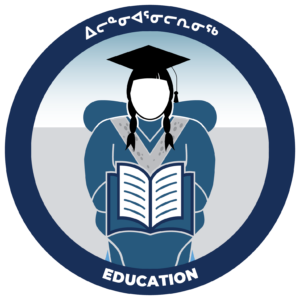
Since 2016-17 each year QIA awards eighty $2,500 QIA scholarships as well as the $5,000
John Amagoalik scholarship to post‑secondary students from the Qikiqtani Region. This week, we will award the 2020-2021 scholarships to Qikiqtani students – I am always very excited to hear from students who are awarded the scholarships. Every year, students let us know how much they appreciate this support and what it means to get help with the cost of school supplies and books.
FIRST QIA INUKTUT LANGUAGE AWARD
This June, we presented our first Inuktut Language Award to high school graduate Katie Kalluk, during the graduation ceremony at Inukshuk High School in Iqaluit.
The $1,000 award, created to celebrate students who demonstrate dedication to the preservation and practice of Inuktut throughout their high school careers, is a partnership between QIA and Inukshuk High School. This is the first time the award has been presented.
Kalluk, originally from Resolute Bay, will Attend the Nunavut Sivuniksavut program in fall 2021 to continue her studies.
NEW QIA PUBLICATIONS
I am excited to once again release our new reports and publications.
Firstly, we have our 2019-2020 annual report which focuses significantly on how we adjusted our work to address the COVID-19 pandemic.
We are also releasing our 2019-2020 Benefits and Legacy Fund report that showcases what our team was able to accomplish despite the COVID-19 closures with our daycare subsidy, daycare resources, Qikiqtani Cultural Activities Program (QCAP) and our Opportunities Fund.
I am also pleased to announce our 2020 newsletter which is a large issue that combines our work from last winter to late summer.
Finally, I want to introduce our Blue Economy digital draft available on our website, which outlines our plans to use the model we developed under the Tallurutiup Imanga Inuit Impact Benefits Agreement to extent protection for two additional marine areas in the Qikiqtani Region: Sarvarjuaq and Qikiqtait.
Sarvarjuaq, in the High Arctic, is adjacent to Tallurutiup Imanga, and would create a continuous protected zone.
Qikiqtait, adjacent to Sanikiluaq, includes more than 1,500 islands, distributed over 3 million hectres.
This work would include an expansion of our Nauttiqsuqtiit Inuit steward program – creating more local jobs for Inuit. It also includes measures to bolster fisheries and repatriate fishing quotas in waters adjacent to our communities. In addition, we are seeking additional blue economy infrastructure such as a research, monitoring and exchange centre in Grise Fiord, multi-use facilities in Qikiqtarjuaq and Sanikiluaq, and a deep-water port in Qikiqtarjuaq.
CONCLUSION
These are unprecedented times and at QIA we are doing our best to continue to work with and support public health officials to keep Nunavummiut safe.
Despite these challenges, I am extremely proud of our team and how we have adapted to meet the challenges at hand. We are acclimatizing to the new normal of operating during a pandemic and will continue to work to serve Qikiqtani Inuit.


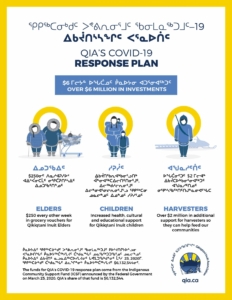 In April, QIA
In April, QIA 


